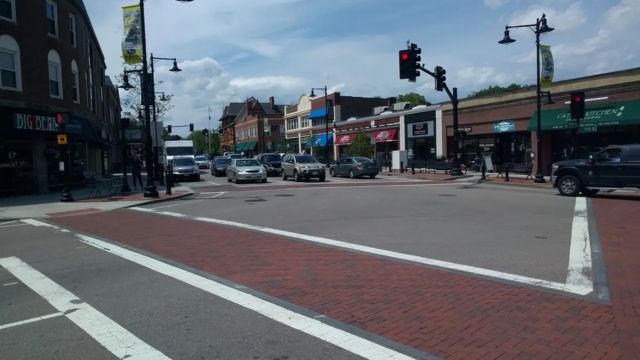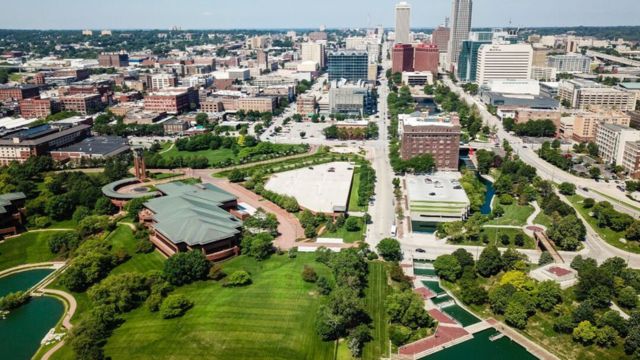
This Town in Massachusetts Was Just Named One of the Saddest Cities in the Entire Nation
Massachusetts is renowned for its athletic teams, prestigious universities, vibrant culture, and extensive heritage. However, not all Bay State cities are pleasant places to reside. A recent study by the nursing education organization CEUFast ranks one Massachusetts municipality among the most depressed in the nation. That city is Springfield, the birthplace of basketball and the third-largest city in the state.
How the research was carried out?
CEUFast compiled a list of the most despondent cities in America by analyzing data from the Centers for Disease Control and Prevention (CDC), the U.S. Census Bureau, and the Substance Abuse and Mental Health Services Administration (SAMHSA).
The research investigated various factors including the proportion of inhabitants who have received a diagnosis of depression from a healthcare professional, the percentage of inhabitants who have encountered severe psychological distress within the previous 30 days, the percentage of inhabitants who have contemplated suicide within the past year, the percentage of inhabitants who have engaged in illicit drug use within the past month, and the percentage of inhabitants whose daily activities are restricted by a disability.
The social and economic conditions of each city, including the unemployment rate, poverty rate, median household income, educational attainment, crime rate, and availability of mental health care providers, were also taken into account in the study. Based on these factors, the study assigned a score to each metropolis, with higher scores denoting greater levels of depression.
Why Springfield is so sad?
Springfield is the most depressed municipality in Massachusetts and the thirteenth most despondent city in the country, according to the study, which assigns it a depression score of 77.8. A professional diagnosis of depression has been made for 28.6% of Springfield residents, according to the study; this figure is higher than the national average of 20.6%.
Additionally, 14.6% of Springfield residents have encountered severe psychological distress within the last 30 days, 5.1% have contemplated suicide within the past year, and 12.9% have engaged in illicit substance use within the past month, according to the study. Furthermore, these rates exceed the respective national averages of 11.7%, 4.3%, and 10.1%.
Additionally, Springfield encounters numerous social and economic obstacles that could potentially contribute to its melancholic atmosphere. 25.8% of Springfield residents, according to the study, are impoverished, which is more than double the national rate of 12.3%. Additionally, 8.9% of Springfield residents are unemployed, which is higher than the national average of 6.1%, according to the study.
Springfield has a median household income of $37,118, which is less than the national average of $60,293. Additionally, 19.9% of Springfield residents hold a bachelor’s degree or higher, which is lower than the national average of 31.5%, according to the study.
Additionally, the research revealed that Springfield exhibits a violent crime rate of 1,060 per 100,000 inhabitants, surpassing the national average of 366 per 100,000 people by more than threefold. Additionally, Springfield has 156 mental health care providers per 100,000 residents, which is below the national average of 214 per 100,000 residents, according to the study.
Strategies for Enhancing Springfield’s Well-Being
Springfield is a depressing metropolis, but it is by no means doomed. There are numerous opportunities for the city and its inhabitants to enhance their contentment and well-being. Some of these methods consist of:
1.) Seeking assistance from a qualified professional for mental health concerns. Anyone is susceptible to developing the severe and treatable condition of depression. You do not have to suffer in silence if you or someone you know is afflicted with melancholy; you are not alone in this regard. A plethora of services and resources are at your disposal to aid in your recovery and coping. To locate treatment options in your area, please contact the SAMHSA National Helpline at 1-800-662-HELP (4357) or consult their official website. Additionally, you may discuss your feelings and needs with a trusted friend or family member, your physician, a counselor, or a therapist.
2.) Participating in activities and behaviors that promote health. Although depression can induce feelings of exhaustion, despondency, and lack of motivation, it is critical to prioritize self-care and engage in activities that bring you joy.
Consuming a well-balanced diet, ensuring adequate sleep, engaging in regular physical activity, dedicating time to outdoor activities, practicing mindfulness, reading, listening to music, participating in sports, volunteering, enrolling in a club or group, or acquiring a new skill are some examples. You can communicate with others who share your interests and values, improve your physical health, and enhance your mood through participation in these activities.
3.) Extending support and engagement towards others. Although depression can induce feelings of isolation and loneliness, you are not alone and do not have to endure this condition alone. Numerous individuals care about you and are eager to be of assistance. One can offer assistance and connection to individuals experiencing comparable difficulties by participating in a peer network, support group, or online community.
Additionally, you can demonstrate your compassion and assistance to those in need by engaging in acts of kindness, attending to their concerns, providing encouragement, or conducting personal check-ins. You can enhance your own life and the lives of others by fostering a sense of purpose, meaning, and belonging through outreach and support.
Conclusion
Springfield is both a city brimming with potential and a city beset by melancholy. Springfield, according to the CEUFast study, is the most depressed municipality in Massachusetts and one of the most depressed communities in the nation.
Additionally, the study demonstrates that Springfield is confronted with numerous social and economic issues that have the potential to impact the mental health and overall well-being of its inhabitants. Nevertheless, the research also indicates that Springfield and its inhabitants can enhance their satisfaction and quality of life in a variety of ways. Springfield can surmount its melancholy and transform into a more joyful and health-conscious municipality by employing support systems and activities, participating in healthy behaviors and activities, and pursuing professional assistance.


